In the publishing industry, many badly-written queries are considered especially heinous, and they are probably the reason why you didn’t get published yet.
The dedicated people who reply to query letters are members of an exclusive elite squad known as literary agents.
These are their stories.
A big thanks to agents who take their time to tweet their queries. This series would not be possible without them.
Agent Analysis – Part 5
Previously on Query and Publish…
Navigate to posts in this series:
Part 6: Agent V.
Part 4: Science Fiction Special
Part 3: Agent Z.
All parts here.
Agent W
Agent W is a literary agent that posted information about 200 queries on twitter over the last few years.
She’s looking for Young Adult (mostly Contemporary realistic fiction and Fantasy), Women’s Fiction, Chick-Lit, and Fantasy. Do you want to know the difference between Women’s Fiction and Chick-Lit? I’m not sure if you’re serious or joking, but here’s a blog article by By LuAnn Schindler about it.
I particularly liked agent W’s tweets because she often gave us COMP titles for both requests and rejections.
Overview
I analyzed 200 queries from agent W, and she requested partials from of 32 them, or 16%. For comparison:
Agent X requested 13.5% of her queries, and agent Y requested 8% and agent Z requested 6.5% of his queries. Take this with a grain of salt: The agents may not have tweeted about all queries they received at that time.
More than a third of the rejections were due to general dislikes and not following query guidelines (37, or 18.5% each – more about that later), followed by query guidelines.
Genres
Also, more than a third of agent W’s incoming queries are Young Adult (69 queries, or 34.5%). There were a lot of queries where she didn’t mention the genre and none of those had requests (27, or 13.5%)


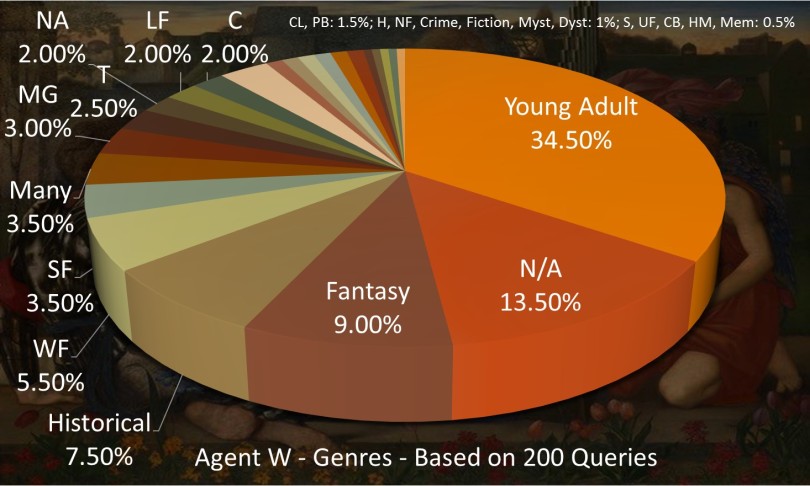
Rejections
Dislikes
Dislikes lead her rejections (37 out of 200, or 18.5%), and I was able to find some subcategories to her dislikes. This is based on her personal preferences.
1. Weak female MC or love interest
![commission__anatomy_of_a_manic_pixie_dream_girl_by_annsquare-d7u82bw[1].jpg](https://hofsetz.com/wp-content/uploads/2017/05/commission__anatomy_of_a_manic_pixie_dream_girl_by_annsquare-d7u82bw1.jpg?w=495&h=639)
- MPDG is an auto-no. I googled MPDG and it comes back as Manic Pixie Dream Girl. Great, right? Still feeling stupid, I googled that. Wikipedia says: “MPDGs are said to help their men without pursuing their own happiness, and such characters never grow up; thus, their men never grow up“. And here’s a blog article about it.
- Passive/submissive female MC and aggressive/dominant male love interest.
2. Sad and depressive MCs.
- Several rejections due to woe-is-me MC (this expression comes from the bible, by the way!).
- MC with no hope.

3. Violence, abuse or bullying
- Female MC is raped, tortured, finds herself with male hero.
- Graphic domestic violence.
- Stalker boyfriends.
- MC is major mean girl.
4. Style, tropes or theme dislikes:
- Vampires. And stalker boyfriends.
- Dystopian.
![vampire-bite-halloween-1016196[1].jpg](https://hofsetz.com/wp-content/uploads/2017/05/vampire-bite-halloween-10161961.jpg?w=264&h=176)
- Politics, guns, religion.
- Terrorism
- Edgy content.
- Animal POV. She dislikes anything with animals or pets talking.
- Aliens. Or worse, aliens with a philosophical purpose.
- Psychological thriller.
4. Query dislikes
![blogs_artsdesk_files_2011_03_girltalk[1].jpg](https://hofsetz.com/wp-content/uploads/2017/05/blogs_artsdesk_files_2011_03_girltalk1.jpg?w=350&h=263)
- Too many characters in the query and no clear plot.
- Graphics in the query.
- Spent more time defending 3rd person POV than focusing on the novel. “I’ma let you finish, but third person POV is one of the best persons of all time.” Hey, we saw this before in the Science Fiction Special!
- Query written from POV of main character.
5. Others
- Male MC in a matriarchal system trying to overthrow it. It’s too risky to publish this.
- A few rejections where story jumped too early into conflict. Agent W wants to know about world and/or MC first. Some agents prefer conflict first, so do your homework.
- COMPs are fine, near plagiarism isn’t.
Query Guidelines
Tying with dislikes, 37 out of 200 – or 18.5% – didn’t follow explicit or implicit query guidelines.
- Queries that break explicit rules:
![1p7x9e[1].jpg](https://hofsetz.com/wp-content/uploads/2017/05/1p7x9e1.jpg?w=246&h=191)
- Several queries with no sample provided.
- Queries with attachments.
- “Attached is my query and manuscript.”
- .zip file attached.
- Attached 10 manuscripts and demanded US$500 for each.
- No query:
- Just a link to know more.
- E-mail to entire agency with images attached and no info about the project.
- “Here you go!” with 10 chapters attached.
- Only a request to publish it followed by a pdf attachment of the whole manuscript.
- Queries that break implicit rules (this can probably be generalized to other agents):

- Query sent after author already received offer of representation from another agent.
- Same as above, but a re-query that was already rejected.
- Many queries that were clearly submitted to more than one agent (not in the same agency). Agents know you submit to other agencies, but don’t make it obvious. It’s a gaffe. One query had 50 agents in it.
- Query for second book where first one was self-published.
- Mass e-mail.
- Query addressed to a different agent at the same agency.
- All about the author, nothing about the manuscript.
- Many queries with links everywhere.
- Several queries pitching two or more manuscripts at once.
- “Dear Agent,” sent four times in the same day.
- Missing word count and what drives the novel.
- Four different queries sent the same day with a “here you go” format.
- “I don’t know what interests you but…” Yeah, you should know.
- Overuse of italics and CAPITALIZED words. Like exclamation points, it should be used sparingly. Bold and colorful fonts. Be clean and professional.
- Unfinished book:
- Query sent before project was finished.
- Book was written a month ago. Don’t immediately pitch your book just after #NaNoWriMo. Most of the work on your book will be done after your first draft. Lisa Poisso has a great chart about the process (shown below):
![Stages-of-Editorial-Revision[1]](https://hofsetz.com/wp-content/uploads/2017/05/stages-of-editorial-revision1.jpg?w=810)
Bad Query
I categorized 27 out of 200, or 13.5% of the queries as “bad queries”.
- What would you do if queries, like essays, didn’t have questions?
- Query was told in questions?
- What would you do if?
- Have you ever imagined?
- Crazy, odd or weird:
![The-Cones-of-Dunshire-1[1].jpeg](https://hofsetz.com/wp-content/uploads/2017/05/the-cones-of-dunshire-11.jpeg?w=282&h=178)
The Cones of Dunshire - Writer demands money for representation. Uh… you’re not there yet.
- An organization “tried to stop this book”. Perhaps it was the National Association for Self-Esteem. This is my favorite rejection from agent W. No info about the book, though.
- Vague summation vaguely linking to vague contemporary. Vague. Agent W is making it difficult for me to write my usual jokes. She’s doing all the work already.
- Author pretending to be character in the query.
- Was more interested in sharing a board game version of the novel. Reminds me of The Cones of Dunshire.
- Self-deprecating query:
- Literary fiction that “has zero chance of happening”. Okay!
- Half the query about why the manuscript may never get published. Be bold, confident, but not cocky when pitching.
Note to self: change my website’s featured image:

- Author is the best thing since sliced bread:
- Six paragraphs on the writer brilliance, one paragraph on the story. Show, don’t tell people!
- Four paragraphs on author, two on story.
- Ten paragraphs about author and three sentences on the book. Perhaps the author should write an autobiography instead?
- “I am amazing. Look at how amazing I am.”
![narcissistic-personality-disorder-symptoms[1].jpg](https://hofsetz.com/wp-content/uploads/2017/05/narcissistic-personality-disorder-symptoms1.jpg?w=810)
Who’s awesome? You’re awesome. - Writer talks more about himself than the book.
- Pompous posturing got in the way of sharing the pitch.
- Four sentences describing how the manuscript would benefit readers, one sentence on the manuscript.
- Bad writing in query:
- Incomplete sentences and several grammatical er
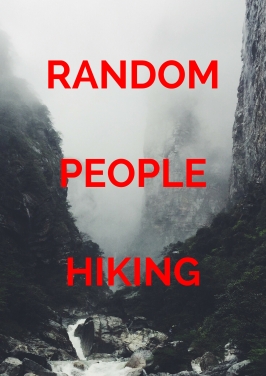
It’s not about any MC. It’s about the journey. rors.
- Grammatical errors in quoted snipped.
- Poor punctuation and syntax.
- Short sentences. Abrupt phrases. Half-phrases.
- Incomplete sentences and several grammatical er
- Others:
- Scattered query and summary.
- Explains theme and story instead of telling her about the story.
- Pitched a series without MC to follow. Authors should pitch one book with a cast, MC, and “series potential”.
- Diverse for the sake of being diverse.
- Too much “my book is about this” language.
- Query opens with a character list.
- No word count, no theme, nothing driving the story.
- Mystery set in “X”. Characters try to solve mystery.
Bad Writing
Sometimes the query is awesome (e.g. neat query with converging parallel POVs, great time period and genre blend, solid premise, diversity excellent, brilliant concept, powerful opening action scene, fascinating topic, great idea) but the author fails in the execution part. Think about this as having a successful first date, but failing in the next one. This is, according to agent W, “a major bummer”.
16 out of 200 queries (or 8%) fall in this category.

- Weird writing:
- Choppy writing.
- Stilted writing.
- Bizarre, and, comma-happy, phrasing.
- Lofty language.
- Bad writing:
- Run-on sentences, incomplete sentences and; poor? Punctuation.
- Writing needs lots of tender, loving and caring (TLC), edits and polishing.
- Too vague and lyric.
- Filledly withly adverbs. Read my “Verb, do you even lift?” post about adverbs.
- Poor opening paragraph.
*Hmm… This is actually kind of funny. And I’m hungry now.
- Bad dialogue: In many cases, unrealistic dialogue killed an awesome query.
- Forced/stilted dialogue. “Joshua, you’re reading a newspaper.” “And you’re crossing your arms.”
- “Do you estimate the way my mouth talks lacks authenticity?” “Affirmative.” Dialogue has to sound natural. Read manuscript out loud to improve dialogue. Also, you should listen to how your target audience speaks with others.
- Writing sample that contains *all* dialogue. Talk about talking heads, people.
Saturated
In some of the queries in this category (15 out of 200, or 7.5%), agent W thought that the query was so close to make it, the writing sample was good, but it was not original enough.![maxresdefault[1].jpg](https://hofsetz.com/wp-content/uploads/2017/05/maxresdefault1.jpg?w=428&h=241)
- Post-apocalyptic with unoriginal plot.
![8490112[1].jpg](https://hofsetz.com/wp-content/uploads/2017/05/84901121.jpg?w=186&h=284)
- Angry girl assassin assigned to protect prince she means to kill.
- Fantasy story exactly like Daughter of Smoke and Bone.
- Vampires fall in love with humans.
- Project has been published twice last year without success (she doesn’t mention what is it).
- Agent W figured out the COMP title before it was even mentioned. This makes it too similar.
- Rich family, secret society, girls with swords. Good concept, but doesn’t stand out.
- Too similar to other WWII books.
![19549841[1].jpg](https://hofsetz.com/wp-content/uploads/2017/05/195498411.jpg?w=186&h=281)
- Premise lacks originality.
- Chosen one + superhero.
- Chosen one is sent on a quest and makes friends.
- MC transported through dreams.
- Query reads a lot like Seraphina.
See Adam Tots stereotypical Dystopian Young Adult novel here.
Doesn’t Rep
A relatively large number of queries (11 out of 200, or 5.5%) had genres that this agent doesn’t represent.
- New Adult Science Fiction.
- Memoir.
- Science Fiction.
- Chapter Book.
- Middle Grade.
- Novella.
- Picture book.
- Nonfiction.
Wrong Genre
6 out of 200 (3%) either had the wrong genre in the query, or the author didn’t know the genre, which is also bad.
- Claims to be contemporary fiction, then
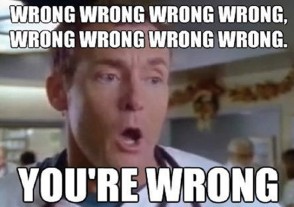 Science Fiction, then Dystopian. Know your genre!
Science Fiction, then Dystopian. Know your genre! - Commercial fiction, later called crime and nonfiction memoir. What is it?
- Camelot story – is it Adult? Young Adult? Low word count for adult.
- Unsure of market when pitching.
- No genre specified, comp titles include Middle Grade, Young Adult and Adult, from Fantasy to Contemporary to Historical Fiction to Horror.
Unexciting
In 4 out of 200 queries (2%), the attached chapters were just dull.![Dull_and_Boring[1].JPG](https://hofsetz.com/wp-content/uploads/2017/05/dull_and_boring1.jpg?w=328)
- Typical urban fantasy tropes (vampires + werewolves) where writing didn’t stand out.
- Writing sample lacked oomph.
- Excellent and succinct query, but writing lacked spark.
- Comparable titles excellent and spot on in the query, but sample was not compelling.
Too Long or Too Short:
See my post on query rejections due to word count here.

Too Short (4 out of 200, 2%): Word length is that of a novella, YA Fantasy with 30k, YA Contemporary with less than 20k, YA Contemporary/horror with word count less than a novella.
Too long (1 out of 200, .5%): Young Adult Fantasy with a very high word count (not specified).
Others:
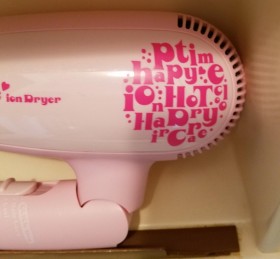
Confusing (4 out of 200, 2%): No plot: Everything is rainbows and sunshine, complicated love geometry plot and character list, difficult to follow, a lot going on: needs direction and purpose.
Telly (3 out of 200, 1.5%): More telling than showing, neat topic and time period but telly, lots of telling.
Not for her (3 out of 200, 1.5%): Strong query but voice not for her, unique and complex story, but style not for her, Historical Fiction where the era and topic are not selling.
Requests
I’m so out of my depth analyzing this agent since her genre preferences and interests are very different than mine, and I sometimes don’t know what exactly she’s talking about. To giveth thee an example, when the lady says Shakespeare incorporated, the meaning escapes me. Luckily, she often tells us COMP books that are similar to the query, so this helps me understand her choices better.

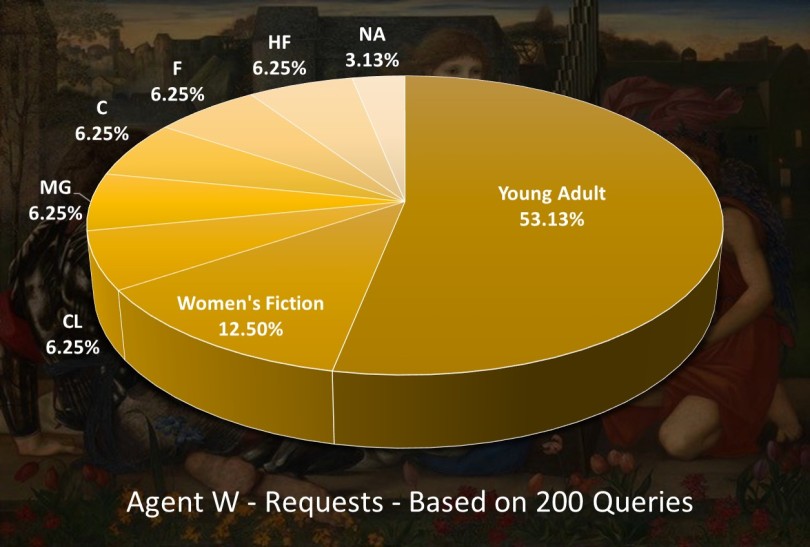
![10964[1].jpg](https://hofsetz.com/wp-content/uploads/2017/05/109641.jpg?w=140&h=214) Agent W looks for humor, wit and commercial appeal in her queries. She also likes Tennyson (here’s my guess), Camelot and pre-Raphaelite era.
Agent W looks for humor, wit and commercial appeal in her queries. She also likes Tennyson (here’s my guess), Camelot and pre-Raphaelite era.
- Young Adult – Fantasy
- YA Fantasy where a Shakespeare play meets Outlander.
- WINNER’S CURSE set in Ancient France.
- Reads like an awesome Shakespeare play.
- Familiar but unique and fascinating magic system with non-Euro feel.
- QUEEN OF BLOOD like world-building.
![16069030[1].jpg](https://hofsetz.com/wp-content/uploads/2017/05/160690301.jpg?w=140&h=210)
- Tennyson, Camelot, Pre-Raphaelite in the query.
- Retelling of myth but in an untraditional Fantasy world (like UPROOTED).
- Dragons with unusual premise and unique POV.
- Matched #MSWL so perfectly that agent W thought she was dreaming.
- Young Adult Contemporary
- Great writing and opening chapters.
- Humorous and witty boy-centric
![22544764[1].jpg](https://hofsetz.com/wp-content/uploads/2017/05/225447641.jpg?w=140&h=205) story.
story. - Query and sample voice matched. Fresh writing reminiscent of Morgan Matson.
- Witty, dark and funny sample.
- Query with something she hasn’t seen before and excellent voice in sample.
- YA focused more on friendship than romance, similar to Emery Lord‘s work (which is funny since the cover of her books always shows a couple).
- Great COMP titles, answered an #MSWL request and has amazing
![25036395[1].jpg](https://hofsetz.com/wp-content/uploads/2017/05/250363951.jpg?w=140&h=212) voice.
voice. - Shakespeare incorporated rather than retelling with FANGIRL vibes.
- Women’s Fiction
- Southern Kate Morton feel.
- Answered #MSWL with humorous Women’s Fiction story.
- Heartbreaking stakes, interesting concept and polished writing sample.
- Wordy query, but story is cute and fun.
- Middle Grade: She’s not seeking MG but still requested two queries in this genre.
- Neil Gaiman-y characteristics. She’s
![16068905[1].jpg](https://hofsetz.com/wp-content/uploads/2017/05/160689051.jpg?w=140&h=208) not seeking MG, but loved this query.
not seeking MG, but loved this query. - Mystery. Humor, detective work and JACKABY paranormal vibes.
- Neil Gaiman-y characteristics. She’s
- Contemporary
- Humor, wit, commercial appeal.
- Contemporary but with 19th century Donna Tartt feel and Gothic elements.
- Chick Lit
- Fantasy
- Fantasy lacking fantasy tropes, therefore unique, with beautiful and engaging writing in sample.
- Rich and compelling Adult Fantasy world with lush and accessible writing. Dialog is convincing and realistic.
- Historical Fiction
- Historical Thriller with fierce and humorous protagonist, polished voice in the writing sample.
- WWII POW camp with romance + Italian spin.
- New Adult
- Gothic, sounds like YA. Intriguing.
Conclusions
There’s not much to say–the numbers speak for themselves–but you should obviously research your agent before submitting.
And, finally, in case you’re wondering, the background picture I used in this post is called Chant d’Amour by Edward Burne-Jones, a pre-Raphaelite artist, and it’s currently on display at the Metropolitan Museum of Art in New York.

Seriously, I wonder what this Raphael dude did that he had a movement to undo what he did. Some people have no manners.
Disclaimers:
-
- I’ve made a lot of assumptions about the tweets. Some of them didn’t have enough information, so this study is partially subjective.
- Some of the information here can be generalized to other agents, but not everything – especially the agent’s personal preferences. Research your agent before submitting.
I’m actively looking for agents and publishers for my book. More info here.
Default Disclaimer: I’m not a writer, I have a hard time paying attention to detail, I overuse adverbs, I start a lot of sentences with ‘I’, and I often confuse words that are similar. More importantly, I reserve the right to change my mind at any time, in which case I’ll deny I ever wrote it. Please let me know if you find something that is too embarrassing. This blog is riddled with typos and creative grammar problems, but it’s mine. Luckily, I can always blame my mistakes on the fact that English is not my first language. Or hackers.
 The Redeemability Scale - Can a non-villain main character go too far and become unredeemable? Where is the line, and why is it drinking decaf? The transgressions are:
Quirks, Small Vices, Lying, Violence, Infidelity, Misdemeanors, Betrayal, Torture, Murder, Mind Control, Hurting Animals, Genocide, Sexism and Misogyny, Bigotry, Slavery, and others.
The Redeemability Scale - Can a non-villain main character go too far and become unredeemable? Where is the line, and why is it drinking decaf? The transgressions are:
Quirks, Small Vices, Lying, Violence, Infidelity, Misdemeanors, Betrayal, Torture, Murder, Mind Control, Hurting Animals, Genocide, Sexism and Misogyny, Bigotry, Slavery, and others.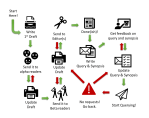 Writing a Book is Much More Than Just Writing a Book -
Writing a Book is Much More Than Just Writing a Book - The stages of writing.
 More Than Words - Show vs. Tell: Overexplaining and hand-holding are not the words I want to hear from you.
More Than Words - Show vs. Tell: Overexplaining and hand-holding are not the words I want to hear from you. Don’t tell; show me the glint of light of my burning novel. - Show, don't tell is the number one rule of writing. Seriously, how often you do stuff without knowing the number one rule of it?
Don’t tell; show me the glint of light of my burning novel. - Show, don't tell is the number one rule of writing. Seriously, how often you do stuff without knowing the number one rule of it? Everyone’s a Critic - When classic novels get harsh reviews, and even fake writers are chastised, your book will definitely have more than its share of criticism. Or to be more formal, haters gonna hate.
Everyone’s a Critic - When classic novels get harsh reviews, and even fake writers are chastised, your book will definitely have more than its share of criticism. Or to be more formal, haters gonna hate. Believability is Overrated - Despite the fact they distract readers, and sometimes break the suspension of disbelief, novels with blatant problems may still become best sellers.
Believability is Overrated - Despite the fact they distract readers, and sometimes break the suspension of disbelief, novels with blatant problems may still become best sellers. Verb, do you even lift? - Adverbs, the next twist on my ongoing backwards journey to learn to write after I wrote my adult science fiction book.
Verb, do you even lift? - Adverbs, the next twist on my ongoing backwards journey to learn to write after I wrote my adult science fiction book. Emotional Cheat Sheet - This emotional cheat sheet is based on the wheel chart, but it's longer, with no misspells or duplicates, and in an easier-to-read format.
Emotional Cheat Sheet - This emotional cheat sheet is based on the wheel chart, but it's longer, with no misspells or duplicates, and in an easier-to-read format. He thought; therefore, he was. - Writing can be tense and personal - or how I accidentally wrote a book in first person and present tense.
He thought; therefore, he was. - Writing can be tense and personal - or how I accidentally wrote a book in first person and present tense.

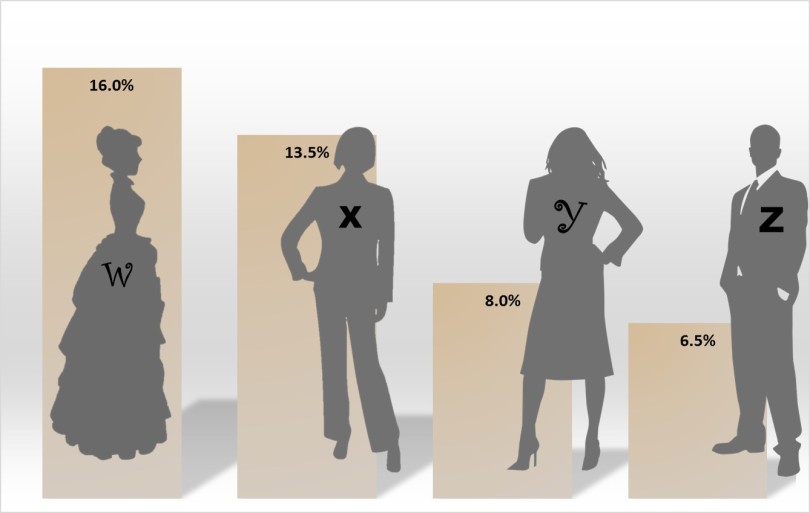

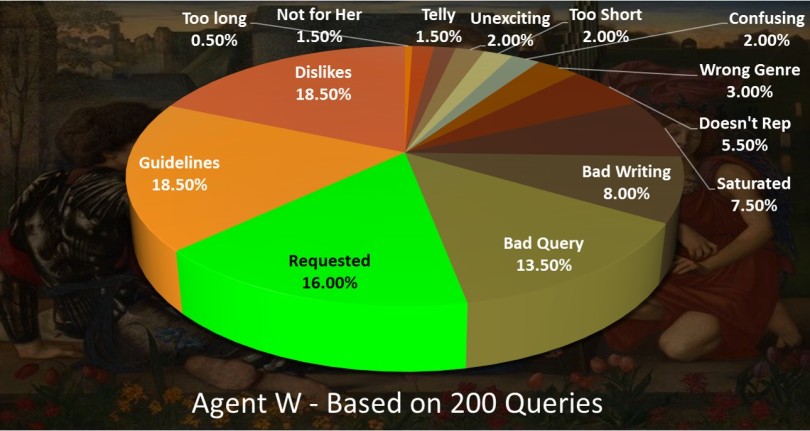
![20312462[1].jpg](https://hofsetz.com/wp-content/uploads/2017/05/203124621.jpg?w=140&h=210)
Reblogged this on Lonely Power Poles and commented:
Agent Analysis by C Hofsetz, love this stuff
LikeLike